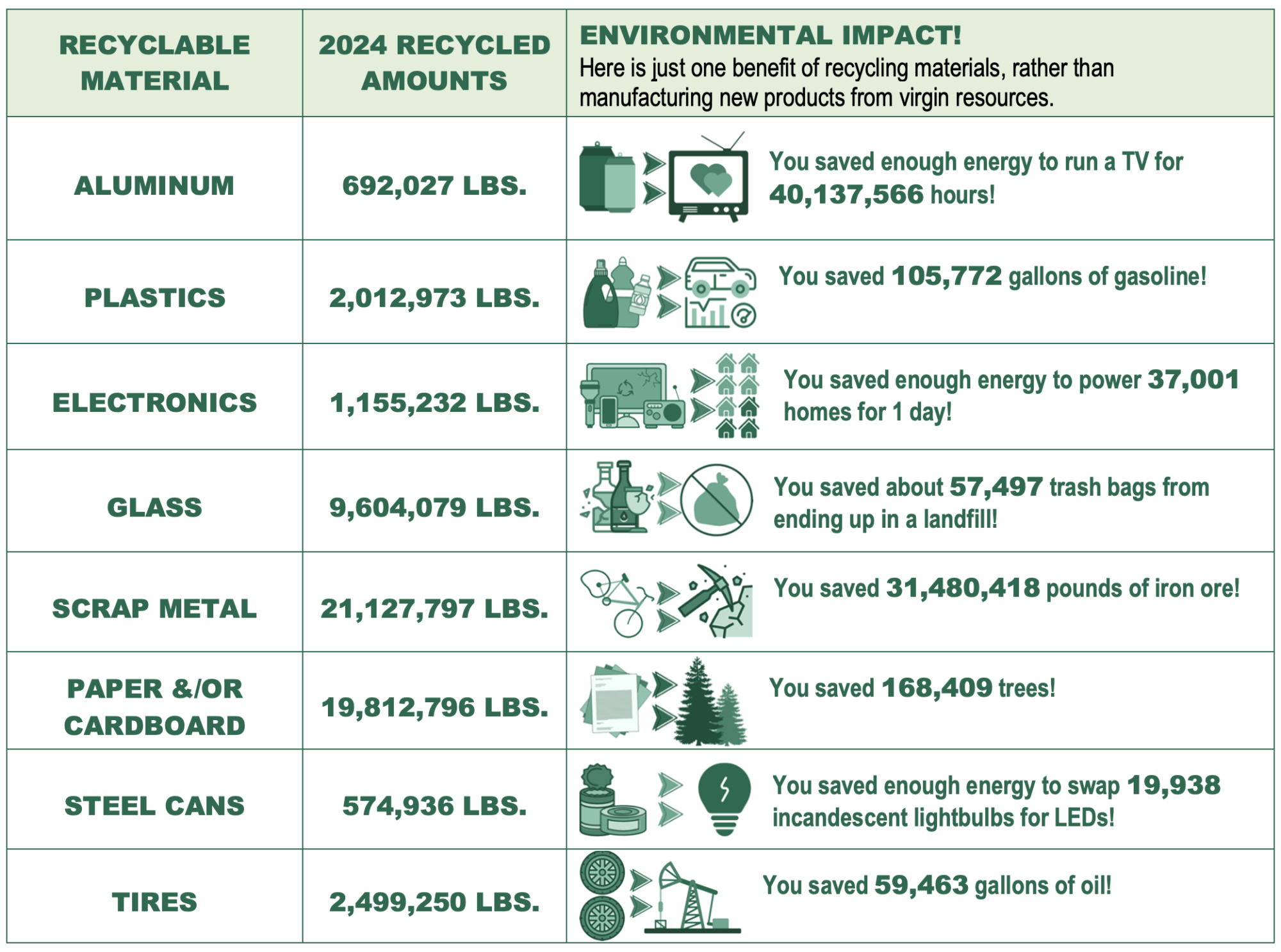Through your continued support and dedication, NRRA has assisted our members in recycling and managing over 77.7 million pounds of material in 2024!
The comprehensive NRRA Environmental Impact Report below highlights some of the many positive impacts generated from our members' combined recycling efforts from January through December 2024. These materials were sent to market to be remanufactured into new products. The following data was calculated using the U.S. Environmental Protection Agency's Waste Reduction Model (WARM).

 Recycling uses much less energy than making products from virgin resources. Using less energy means fewer greenhouse gases are emitted into the atmosphere.
Recycling uses much less energy than making products from virgin resources. Using less energy means fewer greenhouse gases are emitted into the atmosphere.
By recycling the materials above, NRRA avoided 195,069,661 pounds of carbon dioxide emissions! This is equivalent to removing 19,732 passenger cars from the road for an entire year!
ENVIRONMENTAL IMPACT REPORT ARCHIVES

